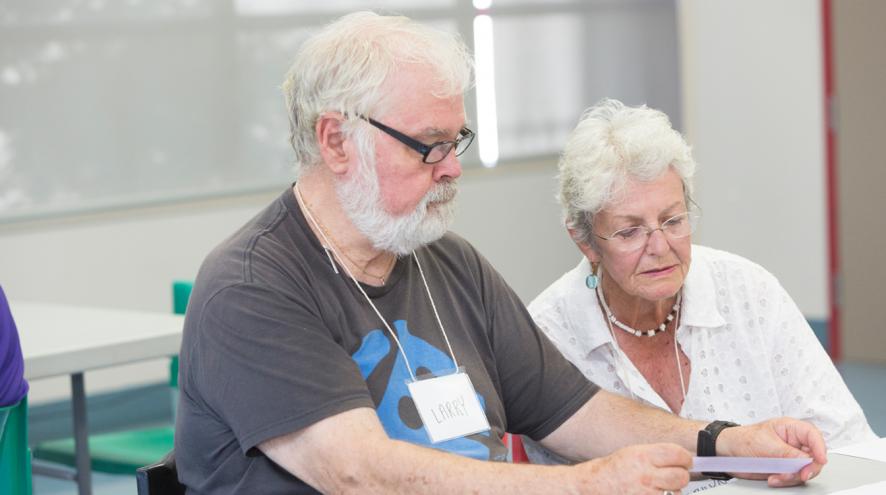Supporting someone to manage their experience during COVID-19
The COVID-19 situation can feel overwhelming, particularly for people affected by dementia. We provide information on how to support someone living with dementia to understand and manage their experience.

People living with dementia will have varying levels of understanding and insight into the events happening around the world because of the COVID-19 pandemic. Because of these differences they will have different responses to the events that are occurring and changes that have occurred because of COVID-19.
A few things to consider if you are supporting a person living with dementia:
- Repeated exposure to negative or anxiety-inducing news can be distressing for someone living with dementia and emotional distress may increase confusion and disorientation
- As dementia progresses and memory is impaired, a person’s awareness of the world can shrink. Some people living with dementia may not have been aware of current events before COVID-19. This lack of awareness could spare them from distress, but also means that they probably lack awareness of the importance of things like frequent handwashing or physical distancing. They may be confused by all of the changes that have occurred.
- A person living with dementia may not remember recent events or news, which could mean that the person is continually learning about the pandemic and the restrictions on their day-to-day life over and over again. This can be incredibly worrying and distressing for the person.
- Impaired judgement and memory may affect a person with dementia’s ability to process information, see the whole picture, and assess risk.
It is important to assess the level to which the person living with dementia has an interest in and understanding of the current situation. This may vary so it is important to reassess frequently.
- It is OK if the person living with dementia does not show interest in, or understanding of, the severity of the current situation.
- In this case, protect the person from infection by keeping them at home, practicing effective physical distancing and handwashing practices, and identify people in your life who you can talk to about your experience and resulting emotions around COVID-19.
- Be aware that even if the person living with dementia is unaware of the events of the COVID-19, they may be perceptive to reading the emotion and body language of others who are close to them. Caregivers will need to identify sources of support for their own experience of COVID-19 to ensure that they are able to manage their own emotions and stay healthy.
- If the person living with dementia is interested in current events and follows the news, take notice of how the exposure to this information affects them. Information about the COVID-19 pandemic is available all day and overexposure to negative and anxiety provoking events can cause detrimental effects to mental health. Discourage watching the news all day. Discuss setting aside time in your daily routine to get updates and info together to ensure that neither of you become overwhelmed but are up to date on current news.
